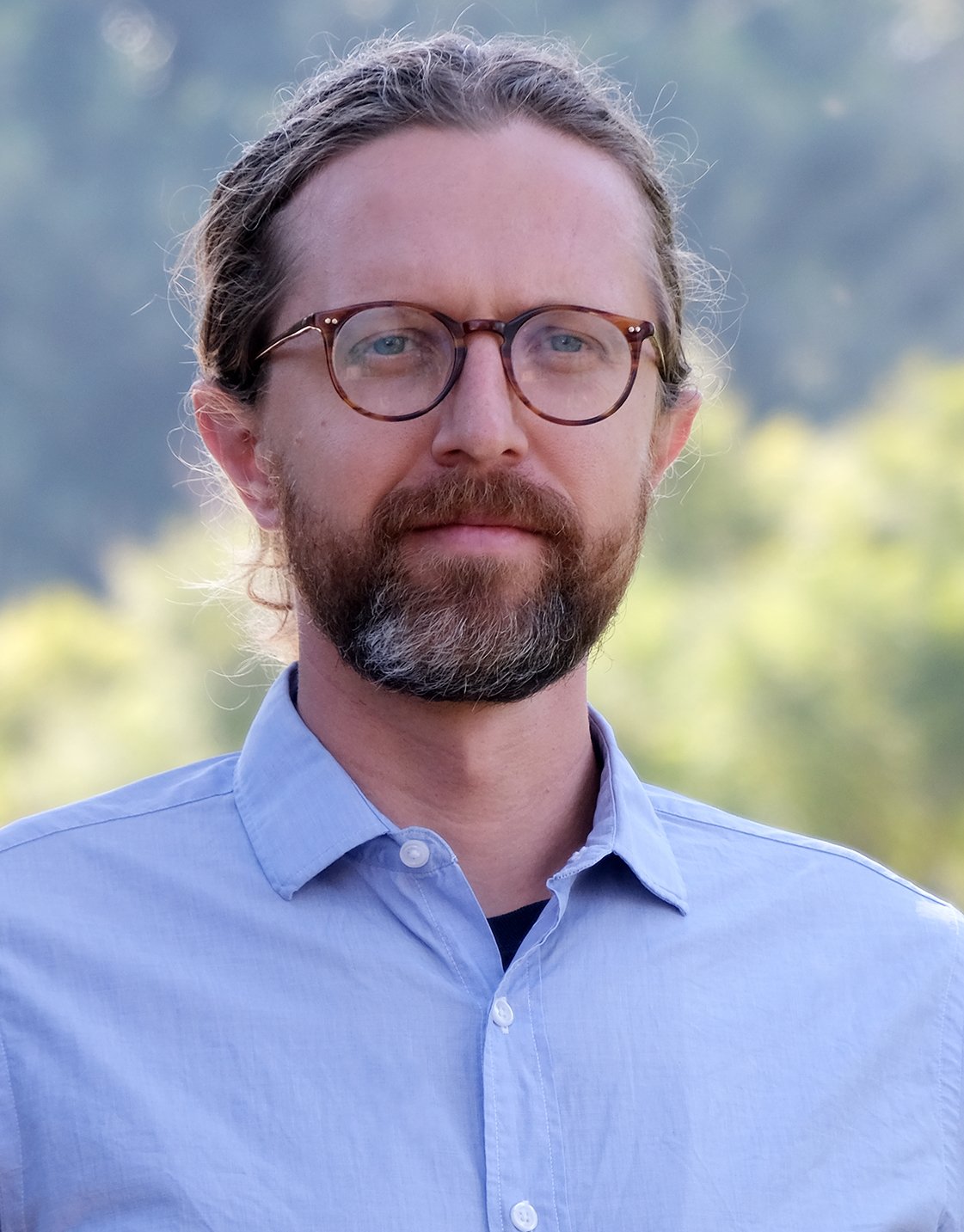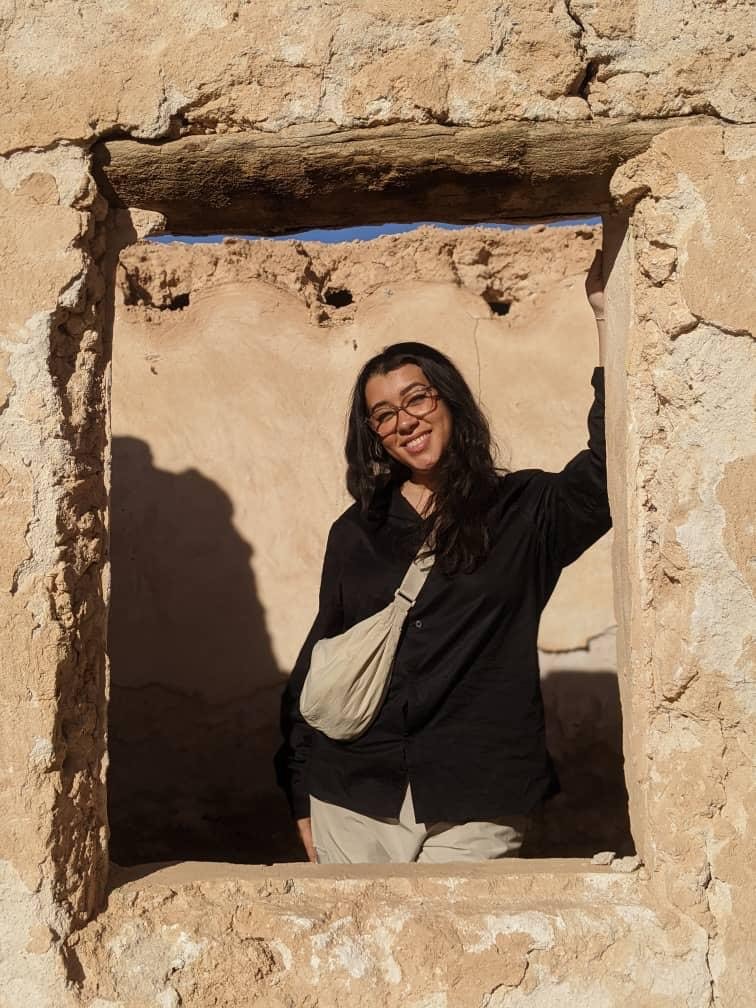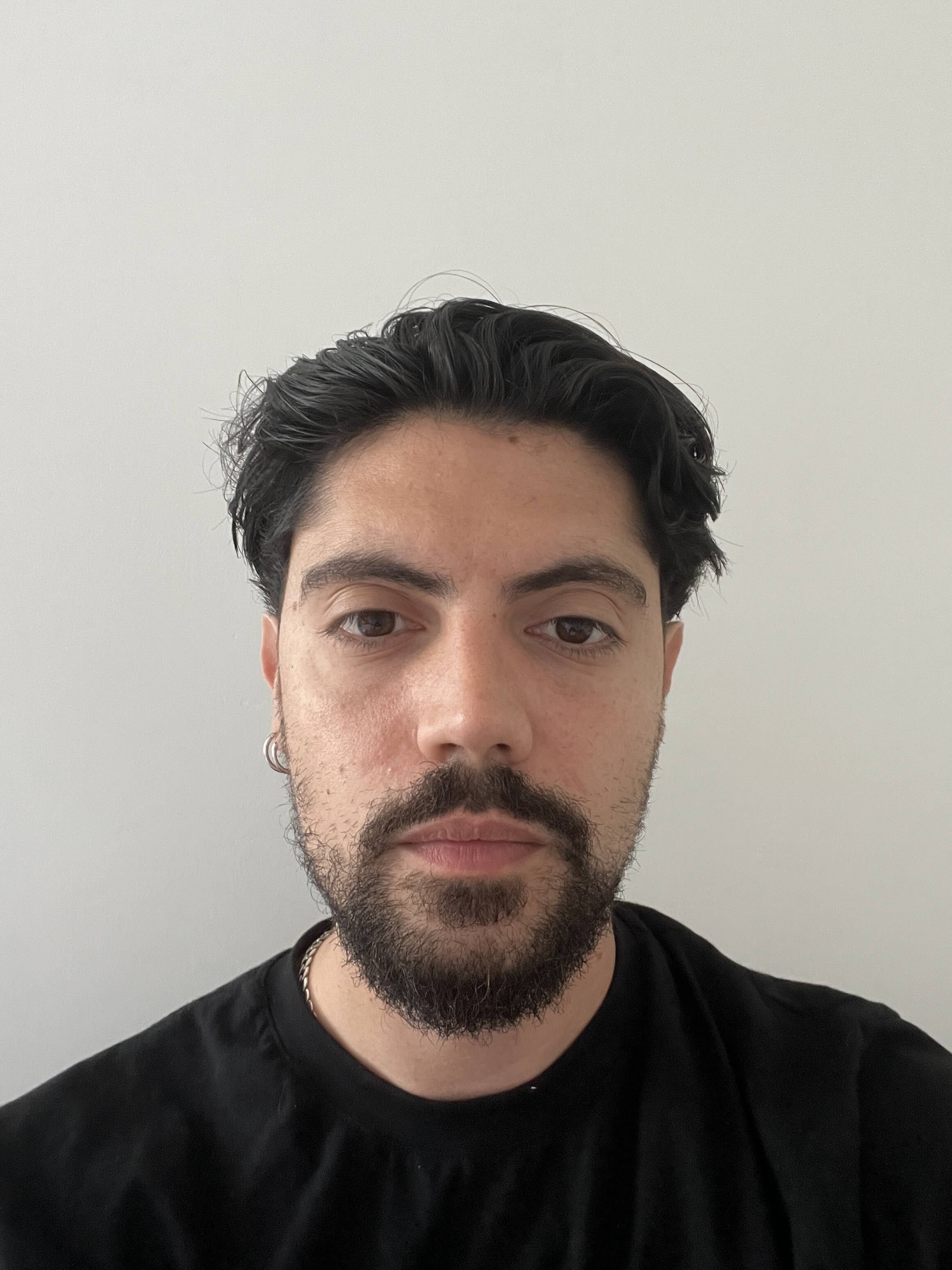“Reading Arabic Manuscripts”
Mediterranean Studies Summer Skills Seminar
23-26 June 2025 • Remote
The Summer Skills Seminar, “Reading Arabic Manuscripts” will be held via Zoom from Monday, 23 June to Thursday, 26 June 2025 from 10am to noon and 1pm to 3pm MDT.
Course overview
This four-day intensive seminar will provide participants with the paleographical tools and skills to quickly and accurately read premodern handwritten Arabic texts. Intensive practice sessions, both prepared and impromptu, will be paired with readings in the major reference works in English (and occasionally other modern languages). The seminar is organized around a general typology of scripts and hands: we will trace the development of the Arabic script from the ḥijāzī and Abbasid bookhands of the Early Islamic period (650–900), to its formalization and regional variation in the middle periods (900–1400), to its further elaboration in the age of early modern empires and eventual standardization in print (1400–1900). Special attention will be paid to major script families that tend to give readers trouble, such as maghribī and nastaʿlīq.
The goal is to enhance participants’ ability to read handwritten Arabic texts in their research and teaching and provide them with a bona fide (in the form of a certificate of completion for those who attend the full seminar), which may be advantageous in securing funding for research and travel. Preparation in Arabic paleography can be a way for scholars working in history, literature, philology, or religious studies (or other fields) to access new and important primary sources, distinguish their research and/or teaching profiles, and enter into discussion with new interlocutors.
Preparation and Resources
Participants are strongly encouraged to watch, before the beginning of the course, one of these two recent UCLA+ Islamic-manuscript training courses:
• https://www.international.ucla.edu/cnes/islamic
• https://marbas.princeton.edu/arabic-manuscripts-workshop-august-23-27-2021
To get a sense of the resources in the field, explore Evyn Kropf’s resources page:
• https://guides.lib.umich.edu/islamicmsstudies
Also recommended are the Leiden and HMML resource sites/courses:
• https://mouse.digitalscholarship.nl/
• https://hmmlschool.org/arabic/
Participants said:
• “The material covered was extremely rich, and the readings were equally valuable. The manuscript samples—both those prepared beforehand and those used during class—were excellent tools for practical training.”
• “Loved the course!”
• “The course gave a good quick introduction and overview of some of the main terms related to the making and reading manuscripts. It filled some gaps in my knowledge and introduced me to new things. The instructor also regularly mentioned to us resources for further readings with every module and topic we discussed and pointed out both recent scholarship and main basic sources under each. This was very useful because it's like a guide for how to go forward with some of the issues. The course had a strong component of sight readings of manuscript notes, colophons and incipits etc and that group work was very useful. I hadn't anticipated how useful that could be. There are many texts that seemed illegible when first looking at them and then by slowly working with the group they started to make sense and that was very beneficial. So on the whole I met my main goals.”
• “While I was excited for this course, I have to admit I was skeptical that one could be taught paleography, especially in a four-day seminar. But the structure of this course -- just enough theoretical foundation to support our intense, hands-on exposure to different kinds of texts -- was extremely effective. I have already looked back at texts that seemed impenetrable and realized that I can read them.”
• “I personally found the balance between small group work, whole-class discussions, and Luke’s presentations and explanations to be excellent. While I especially enjoyed his presentations, I benefited greatly from all three formats. Together, they created a well-rounded and effective learning environment.”
• “The course was excellent. It served as an introduction to some issues and also allowed deep diving into others. I appreciated the introduction to different scripts and the ability to practice them. Since I'm largely self-taught in this area, I hadn't had many opportunities to practice around a wide corpus of texts and scripts. That was very useful and it helped demystify some of the material and break the solitude of that sort of work. I think some of the modules covered could be expanded into their own intensive courses. So this could be like part I, followed by a part II or by more advanced courses on some of the topics covered here. I think the guest lecture/presentation by Matt Keegan could have been a bit more contextualized, though, so as to make better use of the case study. It was very encouraging to meet a previous student of the course who is also a few years after his PhD and who was able to progress significantly in a new project related to manuscripts over a relatively short period of time. This was reassuring to me as a more mature student in this course. But I felt that part of the context was missing.”
• “As mentioned above, most of paleography seems to be white-knuckled practice. What I appreciated about this course was how it gave us a toolbox of practical skills to make manuscript work more approachable. Namely, I thought that focusing on incipits, colophons, and paratexts was a great way to practice reading while also learning skills that can "transfer" across manuscripts in many different genres and hands.”
• “The course covered all aspects of reading Arabic manuscripts from a wide range of scripts, regions and type of documents, in a clear and satisfying manner. The balance between the theoretical discussions and the practical delving into the text samples is the right one, in my opinion.”
Faculty
The course will be led by Prof. Luke Yarbrough (Islamic Studies and NELC, UCLA). A graduate of the Princeton University’s Department of Near Eastern Studies (PhD, 2012) and a historian of pre-modern Islamic history and thought, Yarbrough makes extensive use of Arabic manuscript sources in his work. He has organized and taught several courses in Arabic manuscript studies.
Participants
Sabrina Amrane (History, UC Berkeley)
I am a third-year PhD student in African history at the University of California, Berkeley working on the pre-colonial central Maghrib and Sahara. I am interested in manuscript cultures, Arab and Berber subject formation, and property rights in a desert milieu. I have experience as a graduate student researcher in the West African Arabic Manuscript Database (WAAMD) and established the Maghrib Studies Initiative at the Center for Middle Eastern Studies and Center for African Studies at UC Berkeley.
Joshua Donovan (History, Boston College)
Joshua Donovan is an interdisciplinary historian of the modern Middle East whose work situates the region and its people in a wider global perspective. He is currently a Visiting Assistant Professor of global history at Boston College. He received his Ph.D. in Middle East History from Columbia University and a Masters in Social Sciences from the University of Chicago. He was first drawn to Middle Eastern studies as an undergraduate at Georgetown University – particularly its Alwaleed Bin Talal Center for Muslim-Christian Understanding. Broadly speaking, his work explores the intersections of religion, migration, social movements, and human rights in the Ottoman, colonial, and postcolonial Middle East.
His current book project, Imagining Antioch: Sectarianism, Nationalism, and Migration in the Greek Orthodox Levant, tells a new history of Syria and Lebanon’s Greek Orthodox Christian community from the mid-nineteenth to the mid-twentieth century. Donovan’s scholarship has appeared in Mashriq & Mahjar, Journal of Islam and Christian-Muslim Relations, Journal of World Christianity, H-Diplo, and more. He is also co-editing a special journal issue on knowledge production and forced migration in the Middle East and Europe and has contributed a chapter to a volume on US foreign policy in the Middle East, forthcoming with Cambridge University Press.
Amina Elbendary (Arab and Islamic Civilizations, The American University in Cairo)
Amina Elbendary is associate professor of Middle East history, and Chair at the Department of Arab and Islamic Civilizations, the American University in Cairo. Her research interests include Mamluk studies, social and cultural history of the premodern Middle East, Arabic historiography, and Islamic political thought.
Her publications include the monograph Crowds and Sultans: Urban Protest in Late Medieval Egypt and Syria (AUC Press). The book explores reports of urban protest and dissent in the cities of Egypt and Syria under the late Mamluk and early Ottoman regimes, and analyzes both the historiography of protest and the intricacies of urban politics in the late medieval period. She is also the co-author (with Dalia Said Mostafa) of The Egyptian Coffeehouse: Culture, Politics and Urban Space (I.B. Tauris). She is currently working on a research project related to popularization and late medieval historiography.
Elbendary earned her PhD in Oriental Studies from Clare Hall, University of Cambridge (2007). Before studying at Cambridge, she studied at AUC, earning an MA in Arabic studies with a specialization in Middle East history for her thesis “Histories of the Muslim Hero: Medieval and Modern Perceptions of al-Zahir Baybars” (1999) and a BA in political science (suma cum laude, 1996). At AUC, she was a recipient of the Riyochi Sasakawa Young Leaders Graduate Fellowship. She was also the winner of the Middle East Medievalists award for best graduate paper on a medieval topic in 1998.
She is co-organizer of the Annual History Seminar at the Department of Arab and Islamic Civilizations, a yearly event that brings together scholars of Egypt and the Arab world around a chosen theme. She is a member of the board of trustees of the Women and Memory Forum (WMF), an independent Egyptian research center that focuses on the study of women and gender in Arab cultural history. She is co-section editor for Middle East in the journal History Compass. She is also an associate scholar of the Skilliter Center for Ottoman Studies, Newnham College, University of Cambridge and a member of the editorial board and former co-Book Review Editor of the Turkish Historical Review (Brill) and member of the editorial board of Cairo Papers in Social Sciences (AUC Press). She served on the jury of the Middle East Medievalists Dissertation Prize in 2020. She also serves on the Editorial Board of the Series “Critical Approaches to Arabic Historiography”, recently launched by Edinburgh University Press.
Fredrick Lorenz (History, University of Michigan)
Fredrick Walter Lorenz is Assistant Professor of Middle Eastern History in the Department of History and Philosophy at Eastern Michigan University. His research focuses on migration, settler colonialism, and imperialism in the late Ottoman Empire and modern Middle East. He has published in the International Journal of Middle East Studies, Journal of World History, Global Food History, Archivum Ottomanicum, and Mashriq & Mahjar: Journal of Middle East and North African Migration Studies. Professor Lorenz teaches courses on the history of the Middle East and North Africa, the Israeli–Palestinian conflict, the Ottoman Empire, world history, and transregional migration, settlement, and displacement
Andrei Marinca (History & Philosophy, Universitatea Babeș Bolyai)
Andrei Marinca is a Researcher and Lecturer at Babeș-Bolyai University in Cluj, where he teaches the history of medieval universities, as well as medieval Arabic philosophy. He has a BA, MA and PhD in Philosophy (from UBB University) and a BA in Arabic-Latin (from the University of Bucharest). His research interests are mainly medieval natural philosophy and medieval Arabic philosophy. Starting this year, he is the PI of the project ATOMA: Atomism between Theology, Natural Philosophy and Logic in the Late Middle Ages.
Achille Marotta (European University Institute - Florence)
I am a historian of the early modern Mediterranean, specialized in the history of slavery and exchanges between Christian Southern Europe and North Africa. I am currently Max Weber Fellow at the European University Institute (Florence), where I am writing my first monograph:a social and legal history of enslaved Muslims in the Republic of Genoa.
Berenike Metzler (German Historical Institute)
Berenike Metzler is a habilitated Islamic Studies researcher, currently working at the OIB on a DFG-funded project on Arabic letter semiotics (see “projects”) and based at the German Historical Institute in Washington D.C. She worked in the fields of Qurʾānic studies and early Islamic theology and mysticism and published her dissertation titled “Den Koran verstehen. Das Kitāb Fahm al-Qurʾān des Ḥāriṯ b. Asad al-Muḥāsibī” in 2016.
Afterward, she tried to approach art historical objects of investigation from a terminological perspective and joined a DFG-funded project on text-image relationships in Islamic art at the University of Bamberg (with Prof. Lorenz Korn, 2017-2021). She has recently published her habilitation on concepts of visuality in Islamic cultures at the Chair of Oriental Philology and Islamic Studies in Erlangen, titled Kulturen des Sehens. Begri sgeschichtliche Untersuchungen zur Visualität im Islam.
Current Project: The ABC of Abū Bakr al-Shanawānī (d. 1610). Arabic letter semiotics on the threshold of modern times (Berenike Metzler) The study of the semiotics of Arabic letters is an entirely new field of research. So far, various aspects of Arabic letters in Islamic cultural history have been worked on, but an overall survey of how these letters function has yet to be done. With the still unedited Ḥilyat ahl al-kamāl bi-ajwibat asʾilat al-Jalāl by Abū Bakr al-Shanawānī (d. 1610), a work has been discovered based on which the semiotics of Arabic letters found there can be compared with modern letter semiotics. Moreover, since this work is also the answer to seven questions set about half a century earlier by the Mamluk polyhistor Jalāl ad-Dīn al-Suyūṭī (d. 1505) as a touchstone for true scholarship, the Ḥilya is another important source for the study of Arabic scholarship in early Ottoman Egypt. Thus, this project aims o address three sub-areas: first, the editing and translation of the Ḥilyat ahl al-kamāl bi-ajwibat asʾilat al-Jalāl. Second, the analysis of the letter conception presented in the work against the background of current letter semiotic research. Third, the work’s contextualization in the historical development of pre-modern Arabic scholarship, i.e. with the aid of intratextual, paratextual, and extratextual information. The "ABC" metaphor used in the title thus refers not only in a literal sense to Shanawānī's presentation of Arabic letter semiotics, but at the same time to his location in the intellectual history of his time, that is, to Shanawānī's very personal "ABC" of scholarship.
Riccardo Paredi (Docenti Cattolica, Università Cattolica del Sacro Cuore)
Riccardo Paredi is a Marie Skłodowska-Curie Actions Global Postdoctoral Fello (2024–2027) at Università Cattolica del Sacro Cuore (Milan) and NYU Abu Dhabi, with a three-month research stay at UCLA as part of the fellowship. His current research project focuses on producing a critical edition and annotated English translation of the earliest surviving “encyclopedia” of Sufism, The Book of Flashes (Kitāb al-Lumaʿ) by Abū Naṣr al-Sarrāj (d. 988). He is visiting lecturer in Islamic Studies at the Pontifical Institute for Arabic and Islamic Studies in Rome and a fellow at the Center for Arts and Humanities at the American University of Beirut for the 2024–2025 academic year.
He earned his Ph.D. in Arabic and Near Eastern Languages from AUB in 2023, where he completed a dissertation on early Islamic emotions in religious literature. His research interests include premodern Arabic literature, Islamic studies, the history of emotions, and interreligious dialogue.
Between 2019 and 2021, he taught Islamic mystical literature (in Arabic) at the American University of Beirut, while also serving as a teaching assistant for Arabic language courses for non-native speakers. He previously earned a master’s degree in religious studies (with a focus on Islamic-Christian relations) from the Université Saint-Joseph de Beyrouth (2016) and a bachelor’s degree in Linguistic and Cultural Mediation from the University of Milan (2013).
He co-edited Manifestazioni spirituali nell’Islam (Palermo, 2021), the first Italian anthology of early Sufi texts, and translated Dialogo sempre con tutti (Milano, 2024), a collection of Paolo Dall’Oglio’s Arabic lectures. He authored the e-books Avamposti di amicizia (Venezia, 2024) on interfaith dialogue on the Mediterranean shores, and T-Arab: rivoluzioni cantante (Venezia, 2023) on contemporary political songs from the Arab world. His articles and reviews have appeared in Arabica, Quaderni di Studi Arabi, al-Markaz, al-Abhath, and Journal of the Muhyiddin Ibn ʿArabi Society.
He has published articles and reviews in English, French, and Arabic in academic journals, including Arabica, Quaderni di Studi Arabi, al-Markaz, al-Abhath, and the Journal of the Muhyiddin Ibn ʿArabi Society.
Katherine Randazzo (History, University of Chicago)
Kate Randazzo is a PhD Candidate in History at the University of Chicago, where she studies early modern Iberia, North Africa, and the Mediterranean world. Her dissertation looks at representations of the Morisco expulsion in Spanish and Arabic sources in order to explore how narratives of Morisco identity were shaped by broader dynamics of conversion, migration, and imperial expansion in the seventeenth-century Maghrib. Her research in Spain and Morocco has been supported by the Center for International Social Science Research and the American Institute for Maghrib Studies.
Ana Struillou (Institute of Historical Research (London))
Ana Struillou is a Past and Present Fellow at the Institute of Historical Research (London), interested in all things material and mobile. Her work explores the movement of artefacts and commodities between the Ottoman and non-Ottoman Maghrib, the Iberian Peninsula, and the French Monarchy across the early sixteenth and seventeenth centuries. Her work has appeared in the Mediterranean Historical Review and E-Spania, among other academic venues, as well as in various public history fora
Meerna Suidan Mazzawi (Arabic Language and Literature, University of Haifa)
My name is Mirna Suidan Mazzawi. I am currently pursuing my M.A. degree in the Department of Arabic Language and Literature at the University of Haifa. My thesis focuses on issues related to tense and aspect in Quranic exegesis. In parallel with my academic work, I am translating and editing Kitāb al-Nakhla by Al-Sajistānī from Arabic into English. This translation project includes a critical revision of the text, proofreading, and consultation of the original manuscript to ensure scholarly accuracy













